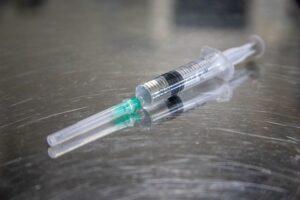A summary of the antibiotic treatment of food-producing animals was prepared
For more than a decade, Hungary has been voluntarily providing data on the wholesale trade of veterinary medicinal products containing antibiotics, but from 2024, in addition to sales, it will be mandatory to send usage data to the European Medicines Agency (EMA). In preparation for the EU report, starting in January 2022, veterinarians in Hungary must prepare a monthly report on the antibiotics used in food-producing animals.

(Photo: Pixabay)
Nébih has prepared an evaluation of the results of the first reporting year – introductory in terms of data collection. In general, it can be said that the rate of inaccurate data provision was high, the specialists of the office had to consult with the veterinarians on several occasions. About a third of the reports required post-correction during data cleaning, the errors most often stemming from the incorrect selection of the unit of measure or the incorrectly specified number of animals.
Based on the evaluated data, the amount of antibiotics used differs significantly from the marketed amounts
Nébih would also like to draw the attention of those obliged to provide data to the fact that, in addition to being a legal obligation, regular and factual reporting is also a priority interest of the industry. To a large extent, these data reflect the success of the processes taking place in Hungary in the fight against antimicrobial resistance. During the first year, the authority did not sanction the lack of willingness to report, but this fall, Nébih is planning another inspection campaign, during which those who do not meet the legal requirements can expect action.
According to reports, in Hungary in 2022, category D* products, i.e. products that should be used with caution, were used to the greatest extent for veterinary purposes
It is reassuring that no reports have been received about the use of drugs containing active ingredients of category A, i.e. to be avoided, reserved exclusively for human treatment. Category B products – with limited use – deserve increased attention, for which the EU average of sales is decreasing year by year, but in Hungary they appear in a large proportion of the data both in terms of sales and use. A major goal in the future is to reduce the use of category B drugs containing a critically important active ingredient.
The evaluation pointed out that the proportion of group treatments for food-producing animals is still significant in our country
The predominance of this will have to be shifted towards individual, targeted treatment in the future. The groups of active substances used in the largest quantities were clearly penicillins (amoxicillin) and tetracyclines (doxycycline), however, there are differences in the “top 5” active substances used in the different sectors. Nébih, based on experiences and feedback so far, is constantly working on making the data recording interface “more user-friendly”. In the future, the office is also waiting for comments and suggestions from veterinarians using the system.
Nébih
Related news
AM: the Szupermenta product test program provides additional information for purchase
The National Food Chain Safety Office (Nébih) Szupermenta product test…
Read more >The Ministry of Agriculture has issued a notice on the use of ENAR data in support policy
In the case of animal-based subsidies financed from EU funds,…
Read more >In the mood for Christmas: szaloncukor in the unusual test of Supermint
The main characters of the seasonal product test of Szupermenta,…
Read more >Related news
Small gas stations have taken a breather
Resolute action and mutual negotiation skills were needed to keep…
Read more >They want it to be premium, but also sustainable – expectations of the youngest generation
GlobalData’s latest report, “Demographics in Retail and Apparel” – which…
Read more >TikTok conqueror: Dubai chocolate craze at Lidl
As the Christmas holidays approach, there is an increasing demand…
Read more >







